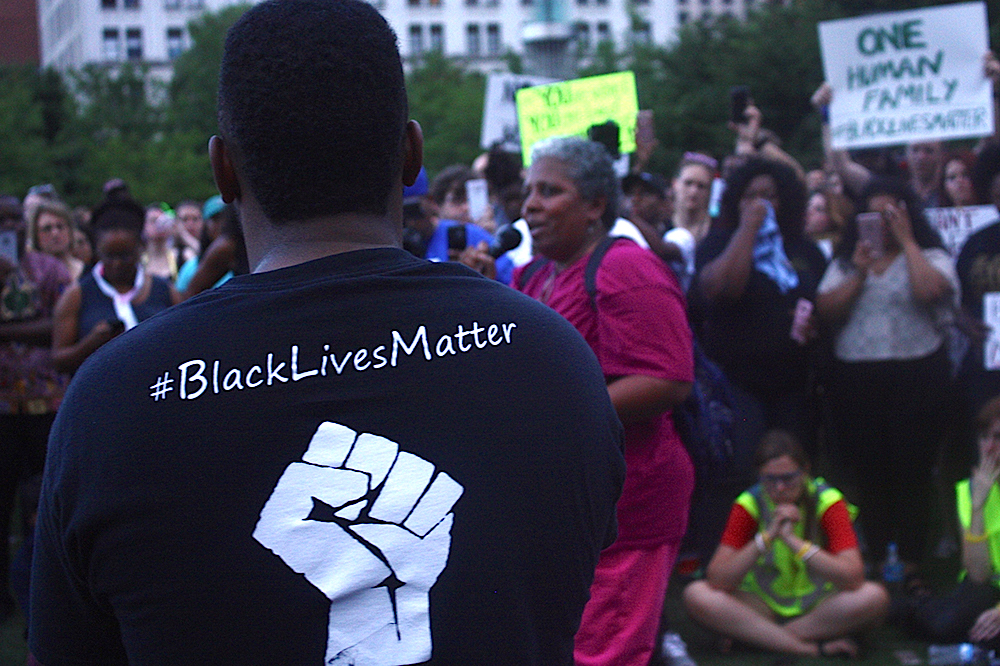
Operation Safer Streets is the Nashville police program that has drawn some of the most specific criticisms from Black Lives Matter Nashville this month. While the department defends the operation (detailed below), the tension reveals a complex question: Does an increased police presence make a neighborhood safer?
The department
created Operation Safer Streets in 2005 to “deter gang crime and respond to neighborhood safety issues.” What this means, week by week, is that police precinct commanders monitor crime data and citizen requests for service, then shift additional officers to those areas on Friday and Saturday nights.
“We go to where victims are reporting crimes — hot spots, if you will,” said Kris Mumford, police spokeswoman.
For example, she said, Safer Streets officers go to areas experiencing abnormally high car burglaries, or will add patrols at shopping malls around Christmas.
The department closely tracks the operation and issues
weekly snapshots. Here’s an excerpt from the most recent
July 5 roundup:
Last weekend’s Operation Safer Streets … resulted in 35 arrests, five felonies, 31 misdemeanors, and ten warrants served. Seized were 22.5 grams of marijuana and two guns.
…
So far this year, Operation Safer Streets has resulted in 803 arrests on 70 felony charges and 741 misdemeanor charges, 18 gun seizures, the service of 292 outstanding warrants, 83 field interviews of persons believed to have gang knowledge, and 4,073 vehicle stops in areas with a gang presence.
In
all of 2015, the operation led to 1,705 arrests, 214 interviews with suspected gang members and 10,657 traffic stops, according to the police.
Each weekend, police also list out the streets they patrolled. That’s where the Black Lives Matter rebuttal begins.
“We have the statistics, every single week, that show us just how many people they’re stopping, and it’s always in black or brown neighborhoods,” said Joshua Crutchfield, a movement organizer.
“We can’t talk about trusting the police when they’re literally occupying neighborhoods where black and brown people live,” he said. “If Metro Nashville wanted to claim black and brown people are inherently more criminal than the rest of the population, then they need to say that.”
Police balk at the suggestion that the operation is about race.
“It truly is (about) where crime is occurring. Any thought that it’s to do with anything else is simply not accurate,” Mumford said.
Heightened Police Presence
Police say Operation Safer Streets is also meant to deter crime, by visibly placing officers in an area.
Again, Black Lives Matter disagrees. It’s a fundamental impasse.
“What we’re saying is the police presence in those communities doesn’t necessarily make anyone safer,” Crutchfield said.
Since the large Black Lives Matter rally on July 8, the group has increasingly talked about de-funding Metro police.
“We’ve allocated so much more money to policing than to social services, which may help reduce poverty and crime,” Crutchfield said. “We’re really interested in divesting from spending on policing and jails.”
@RandomRon police are an important part of this conversation, listening to the stories and recommendations of the community.— Megan Barry (@MayorMeganBarry)
July 23, 2016
Mayor Megan Barry defended the Metro budget on Saturday as making sure police
“
have the resources that they need to provide the services that citizens in Nashville expect and deserve.
“
Police Say Protests Reduce Safer Streets
In something of a twist, Black Lives Matter has inadvertently reduced Operation Safer Streets.
Mumford, with the police, told WPLN that the department paused the operation because officers have been busy protecting recent demonstrations. She said that’s why the most recent operation statistics date back to July 5.
Told of the change, Crutchfield said he doubts the cause-and-effect.
“We didn’t set out to pull police from other jobs to come watch us do demonstrations,” he said. “If that’s the case, we may want to do demonstrations every weekend. But, also, I don’t want Nashville PD to spin this and say, ‘These protesters are keeping us from keeping you safe.’ “
Mumford said the department expects to return to normal levels of Operation Safer Streets.


